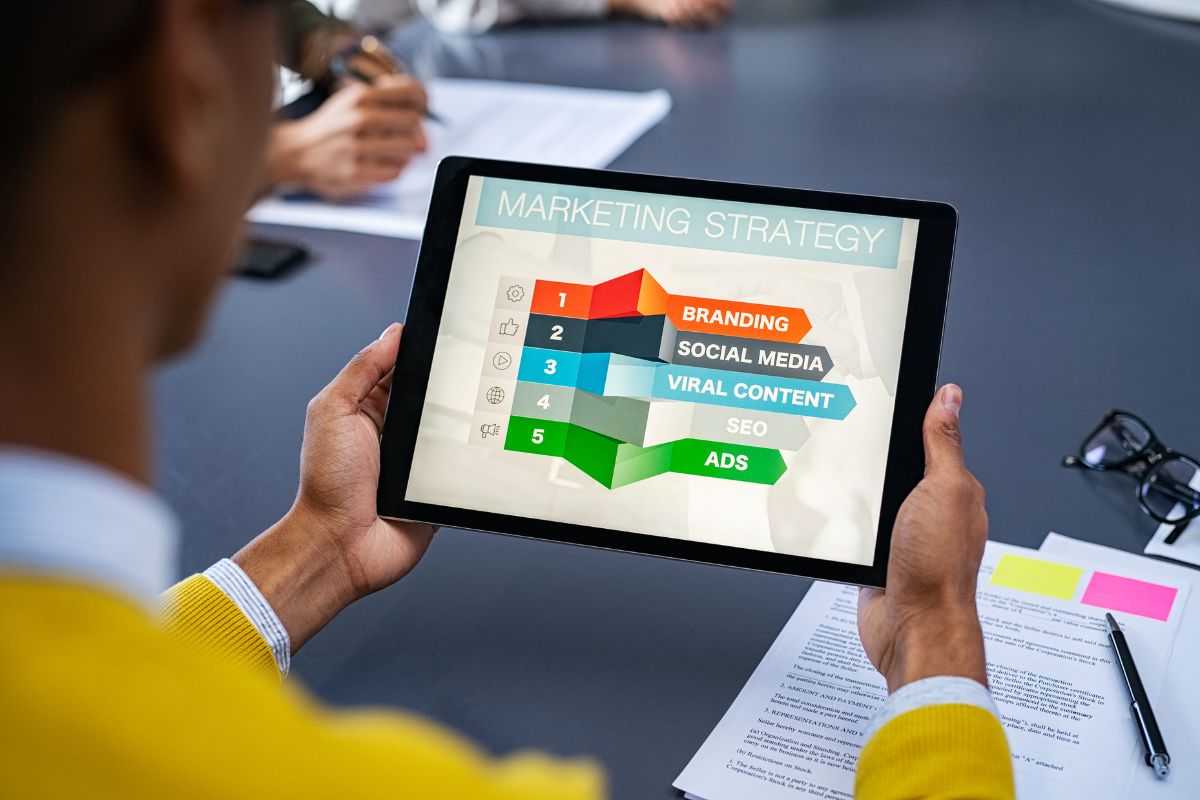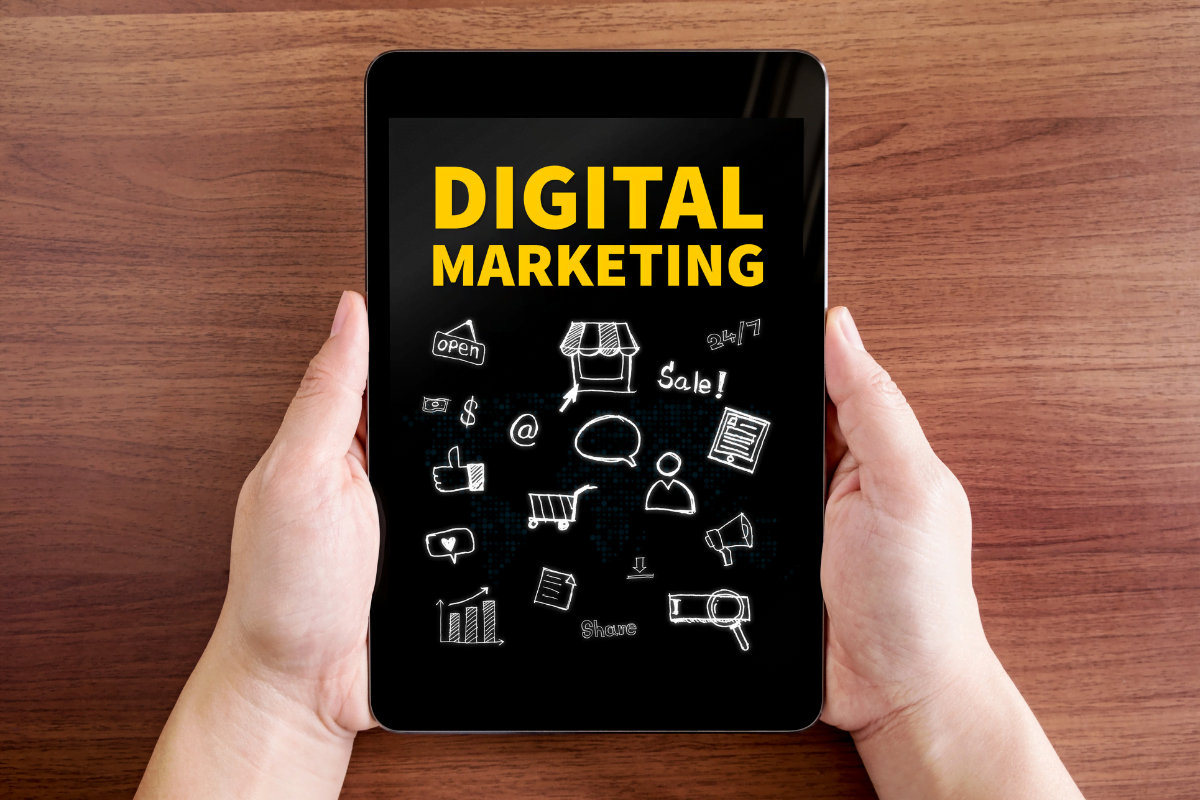In today’s competitive market, attracting new customers is essential for growth. This is where lead generation marketing comes in.
Lead generation involves identifying and cultivating potential customers—turning prospects into leads interested in your products or services. These leads are then nurtured through targeted marketing until they are ready to make a purchase.
Lead generation is vital because it focuses on bringing in quality leads—those most likely to convert—ensuring your marketing efforts drive real business growth.
This article will explore the key strategies and tools you need to master marketing lead generation and fuel your business’s success.
Table of Contents
What Is Lead Generation in Digital Marketing?

Digital lead generation refers to the process of attracting and converting potential customers through online channels.
Unlike traditional methods, which rely on cold calls or direct mail, online lead generation leverages digital marketing platforms like social media, search engines, and email to generate qualified leads.
Why Is Lead Generation Important?
Generating leads is the cornerstone of business growth and success for several key reasons. Here are a few lead generation benefits:
- Fuels Business Growth: A steady stream of leads drives revenue and expands your customer base.
- Enhances Sales Efficiency: It allows sales teams to focus on prospects who are more likely to convert.
- Supports Strategic Marketing: It provides insights that help tailor targeted marketing campaigns for better ROI.
- Builds a Strong Customer Pipeline: Regular lead generation ensures a consistent pipeline of potential customers.
- Facilitates Long-Term Success: It helps build lasting relationships and supports sustained business growth.
Lead Quality
The quality of the lead refers to the potential of a digital marketing lead to become a paying customer. It’s a critical factor in any lead generation strategy because high-quality leads are more likely to convert, leading to better ROI and more efficient sales processes.
Here’s how to ensure you’re focusing on the right leads:
1. Define Your Ideal Customer Profile (ICP):
Develop a clear understanding of the characteristics that make up your ideal customer. This includes demographics, industry, company size, and specific pain points. By defining your ICP, you can better assess whether a lead fits these criteria.
2. Use Lead Scoring:
Implement a lead scoring system to evaluate the potential of leads based on their behavior and engagement. Assign points for actions such as opening emails, downloading content, or visiting key pages on your website. This helps prioritize leads who show strong interest and engagement.
3. Segment and Personalize:
Segment your leads based on their attributes and behaviors. Tailor your communication and offers to meet the specific needs of each segment. Personalized interactions increase the likelihood of converting leads into customers.
4. Analyze Lead Sources:
Track and analyze where your leads are coming from. Determine which channels or campaigns generate the highest-quality leads and allocate resources accordingly. This helps in refining your lead generation strategies to focus on the most effective sources.
5. Continuously Monitor and Adjust:
Regularly review the quality of leads being generated and the performance of your lead scoring and nurturing processes. Adjust your criteria and strategies based on feedback and results to ensure continuous improvement in the quality of your leads.
What Is The Lead Generation Process: How It Works

To understand what is the lead generation process, it’s essential to break it down into key steps:
Lead Generation Campaigns: Attracting Potential Qualified Leads
The process starts by attracting potential leads through various marketing channels, such as:
- Content marketing
- Social media
- Paid advertising
Prospects show initial interest by engaging with your content or providing their contact information.
Generate Leads: Nurturing Quality Leads Through the Funnel
Once you’ve captured these leads, they enter the lead funnel. This funnel consists of stages that guide leads from:
- Awareness
- Consideration
- Decision
Throughout this customer journey, businesses use targeted content and personalized communication to build trust and move leads closer to a purchase.
Lead Generation Funnel: Evaluating and Qualifying Leads
As leads progress through the funnel, they are evaluated based on their engagement and interest. Those who demonstrate a high level of interest are considered qualified leads.
The quality of a lead is a critical focus throughout the process, as they are more likely to convert into customers. By effectively managing the lead generation process, businesses can turn qualified leads into loyal customers.
How Online Lead Generation Efforts Fit into a Larger Demand Generation Strategy
While lead generation is crucial for capturing and nurturing potential customers, it’s part of a broader marketing approach known as demand generation. But what is demand generation in marketing?
Demand generation focuses on creating awareness and interest in your products or services across a wider audience. It aims to build brand visibility, educate potential customers, and generate initial interest that eventually leads to lead generation.
Demand generation marketing drives the early stages of the customer journey, attracting prospects who may not yet be aware of your offerings. Once this interest is piqued, these prospects enter the lead generation funnel, where they are further engaged and nurtured into qualified leads.
Therefore, lead generation serves as a critical component of the larger demand generation strategy, ensuring that the interest generated is effectively captured and converted into tangible business opportunities.
Marketing Lead Generation: Types of Lead Generation Strategies

Lead generation strategies can be categorized into two main types: inbound and outbound lead generation. Each strategy plays a vital role in attracting and converting potential customers, with different methods suited to varying audiences and goals.
Inbound Lead Generation
This approach focuses on attracting potential customers by creating valuable content and experiences tailored to their needs. It draws prospects in through channels like:
- Blogs
- Social Media
- SEO
- Webinars
Lead Generation Strategy: Inbound
A good example of inbound marketing could be a content marketing campaign.
1. Create Valuable Content: Develop high-quality content such as blog posts, eBooks, or infographics that address common pain points or interests of your target audience. For instance, if you’re in the software industry, you could create a detailed guide on “Best Practices for Implementing New Software Solutions.”
2. Optimize for SEO: Optimize your content for search engines by incorporating relevant keywords, meta descriptions, and internal links. This approach boosts your website’s visibility, attracts organic traffic, and draws potential leads through search engine results.
3. Offer Gated Content: Include calls-to-action (CTAs) within your content that encourage visitors to download additional resources or access exclusive information in exchange for their contact details. For example, offer a free template or a comprehensive report available through a sign-up form.
4. Nurture Leads with Email Drip Campaigns: Once leads have provided their contact information, use automated email drip campaigns to further engage them. Send a series of follow-up emails with additional valuable content, insights, or offers to move them further down the funnel.
5. Analyze and Adjust: Track the performance of your content using metrics such as engagement rates, conversion rates, and lead quality. Use this data to refine your content strategy and enhance your inbound efforts.
Outbound Lead Generation
This strategy involves proactively reaching out to potential customers through tactics such as:
- Cold calling
- Email campaigns
- Targeted ads
Lead Generation Strategy: Outbound
An effective outbound strategy could involve a targeted email campaign. Here’s a brief example:
1. Identify Your Target Audience: Research and compile a list of companies or individuals who would benefit from your product or service. Use tools like LinkedIn or industry databases to gather contact information.
2. Craft a Personalized Email: Create a compelling and personalized email that addresses the specific pain points of your target audience. Highlight how your product or service can solve their problems or add value.
3. Implement a Follow-Up Sequence: Set up a series of follow-up emails to engage with recipients who don’t respond to the initial outreach. Include additional information or offers to keep them interested.
4. Track and Optimize: Monitor the email campaign’s performance using metrics such as open rates, click-through rates, and responses. Use this data to refine your approach and improve future campaigns.
While outbound lead generation efforts can reach a broader audience, they require careful targeting to ensure the leads generated are relevant and genuinely interested in your offerings.
Tailoring your lead gen strategies to your specific audience is crucial for success. By understanding your target market, you can choose the most impactful lead generation tactics and channels, ensuring that your efforts resonate with the right people.
Combining both inbound and outbound methods can create a balanced approach, maximizing the potential for capturing high-quality leads.
Lead Generation Tools

Tools are essential for effectively capturing and managing potential customers. These lead tools help streamline the process, optimize the quality of leads, and improve conversion rates.
Here’s an overview of some popular tools and their functions:
Customer Relationship Management (CRM) Systems
CRMs help track and manage interactions with leads, automate follow-ups, and analyze lead data for better targeting. They also provide insights into customer behavior and sales trends, enabling more personalized and effective communication.
Marketing Automation Platforms
These tools automate marketing tasks like email campaigns, social media posting, and lead nurturing, making it easier to engage with leads at scale. They also allow for sophisticated segmentation and personalized messaging based on lead behavior and preferences.
Marketing Lead Software
Specialized software assists in generating leads through various channels, including landing pages, forms, and lead magnets. These tools often integrate with other systems to streamline the capture and management of lead data.
Facebook Lead Generation
Facebook’s advanced targeting options help reach specific demographics and interests, improving the quality of leads generated. Additionally, the platform’s detailed analytics allow you to track and optimize your campaigns for better performance.
Lead Generation Table
Understanding and measuring the effectiveness of your lead generation efforts is crucial for optimizing your strategy. Here’s a table detailing key performance indicators (KPIs) and metrics used to assess lead generation success:
| Metric | Description | Importance |
| Conversion Rate | The percentage of leads who take the desired action (e.g., sign up, purchase). | Indicates the effectiveness of your lead nurturing efforts. |
| Cost Per Lead (CPL) | The average cost incurred to acquire a single lead. | Helps measure the efficiency and cost-effectiveness of lead generation campaigns. |
| Lead Quality Score | A rating that assesses the likelihood of a lead becoming a customer, often based on engagement and fit. | Measures how well leads align with your ideal customer profile, impacting overall conversion rates. |
| Lead-to-Customer Rate | The percentage of leads that convert into paying customers. | Reflects the overall success of your lead generation and sales process. |
| Lead Source ROI | The return on investment from different lead sources (e.g., organic search, paid ads). | Helps identify which lead sources are most profitable and effective. |
| Time to Conversion | The average time it takes for a lead to move from initial contact to conversion. | Provides insights into the efficiency of your sales and lead nurturing processes. |
Achieving Success Through Effective Lead Generation
Mastering lead generation marketing is critical for achieving consistent business growth and long-term success. To truly harness the power of these strategies and see tangible results, consider partnering with experts who can tailor solutions to your needs.
Are you ready to attract more leads and grow your business? Our Atlanta-based digital marketing agency specializes in helping businesses like yours thrive through innovative and effective digital marketing campaigns. From crafting customized strategies to implementing cutting-edge technologies, we’re here to support your growth nationwide.
Let our team of digital marketing experts create a plan that propels your business forward. Contact us today at (404) 301-9189 or schedule a free marketing strategy session so we can so we can craft a winning strategy that elevates your brand and drives measurable results.





